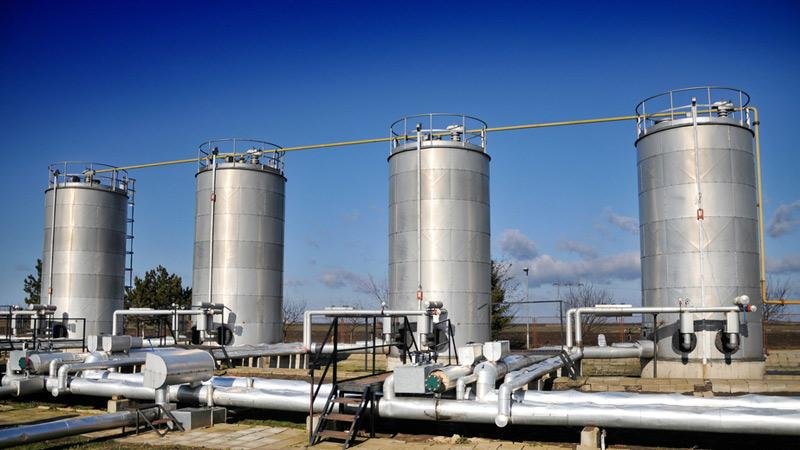LNG as a Transportation Fuel: A Joint Report by NITI Aayog and the Kingdom of the Netherlands
The transportation sector is on the brink of a revolutionary shift, as NITI Aayog and the Kingdom of the Netherlands collaborate on a groundbreaking report advocating for the use of Liquified Natural Gas (LNG) in medium and heavy commercial vehicles. This joint initiative aims to transform the landscape of transportation fuel, ushering in a new era of sustainability and efficiency.
In recent times, the need for cleaner and greener energy solutions has become paramount. In response to this, NITI Aayog, in collaboration with the Kingdom of the Netherlands, has released a comprehensive report endorsing LNG as a viable and eco-friendly alternative for medium and heavy commercial vehicles.
The report sheds light on the challenges posed by traditional fossil fuels, emphasizing the adverse environmental impact and the urgency to adopt cleaner alternatives. With a focus on the transportation sector, the joint effort seeks to address these concerns and propel the industry towards a more sustainable future.
Highlighting the benefits of LNG, the report discusses its environmental advantages, cost-effectiveness, and potential to reduce dependency on conventional fuels. The versatility and feasibility of implementing LNG in medium and heavy commercial vehicles make it a compelling option for the future of transportation.
An essential aspect of the report is the role of governments in facilitating the transition to LNG as a transportation fuel. Policy recommendations and potential incentives are outlined, encouraging governments to take proactive measures in promoting the adoption of LNG in the commercial vehicle sector.

Why this News is Important
Introduction:
The release of the joint report by NITI Aayog and the Kingdom of the Netherlands marks a significant milestone in the pursuit of sustainable transportation. This collaboration underscores the importance of transitioning from conventional fuels to Liquified Natural Gas (LNG) in medium and heavy commercial vehicles.
Environmental Imperative:
The urgency to address environmental concerns related to traditional fossil fuels has never been more critical. This report emphasizes the need for immediate action and presents LNG as a viable solution to mitigate the environmental impact of transportation.
Economic Viability:
Beyond environmental considerations, the report highlights the economic advantages of embracing LNG. As governments and industries grapple with the rising costs of conventional fuels, LNG emerges as a cost-effective alternative, offering long-term economic benefits.
Historical Context
To understand the significance of the joint report on LNG as a transportation fuel, it is essential to delve into the historical context of the use of Liquified Natural Gas in the transportation sector.
The history of transportation fuels has been marked by a constant search for cleaner and more efficient alternatives. From coal to gasoline and diesel, each era brought its set of challenges and environmental concerns, leading to the exploration of LNG as a more sustainable option.
The global shift towards sustainable energy solutions has been gaining momentum over the years. Various countries have initiated programs and collaborations to explore the potential of LNG in reducing carbon emissions from the transportation sector.
5 Key Takeaways from the Joint Report on LNG as a Transportation Fuel
| Serial Number | Key Takeaway |
|---|---|
| 1 | Environmental Impact: LNG presents a cleaner alternative, significantly reducing carbon emissions compared to traditional fossil fuels. |
| 2 | Cost-Effectiveness: The report emphasizes the economic benefits of adopting LNG in medium and heavy commercial vehicles, offering a cost-effective solution for the transportation sector. |
| 3 | Versatility: LNG’s versatility as a fuel for various types of vehicles positions it as a feasible and adaptable option for widespread implementation. |
| 4 | Governmental Incentives: The joint report underscores the importance of government support and incentives to facilitate the transition to LNG, calling for proactive policies to drive adoption. |
| 5 | Sustainable Future: The collaboration between NITI Aayog and the Kingdom of the Netherlands signifies a collective commitment to a sustainable and eco-conscious future for the transportation industry. |
Important FAQs for Students from this News
Q1: Why is LNG considered a sustainable alternative for transportation?
A: LNG reduces carbon emissions significantly compared to traditional fossil fuels, making it an environmentally friendly option.
Q2: What is the role of governments in promoting the adoption of LNG in the commercial vehicle sector?
A: Governments play a crucial role in facilitating the transition by implementing policies, incentives, and support for the widespread adoption of LNG.
Q3: How does the joint report address the economic aspects of using LNG in transportation?
A: The report highlights the cost-effectiveness of LNG, emphasizing long-term economic benefits for industries and governments.
Q4: What are the key takeaways for students preparing for government exams from this news?
A: Key takeaways include environmental impact, cost-effectiveness, versatility, government incentives, and the vision for a sustainable future.
Q5: Has LNG been used in transportation historically, or is it a recent development?
A: The historical context in the article explains the evolution of transportation fuels and the recent global initiatives to explore LNG as a sustainable option.
Some Important Current Affairs Links

















